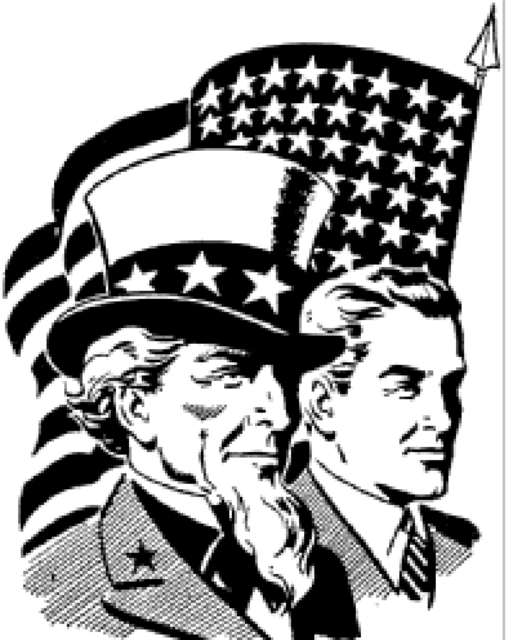NFFE and 12 Unions File Lawsuit Against All Three Workforce Executive Orders
Government Executive, By Erich Wagner, June 13, 2018
A group of 13 federal employee unions jointly sued the Trump administration and the Office of Personnel Management Wednesday, challenging the legality of three controversial workforce executive orders.
The lawsuit, filed in U.S. District Court for the District of Columbia, marks the third legal challenge from federal employee unions, but it is the first that seeks to strike down all three of the executive orders signed by President Trump last month. Those orders aim to make it easier to fire federal workers, limit collective bargaining negotiations, and limit the time union employees can spend on official time, a practice where agencies compensate employees for their time spent on representational matters.
“Generally, our claim is that the Civil Service Reform Act gave the president the authority to issue executive orders in some narrow, specified areas, and it also gave OPM the ability to issue regulations regarding employee conduct,” said Jeff Friday, general counsel for the National Federation of Federal Employees, one of the plaintiff groups. “But Congress specifically did not have the president or OPM in the primary role of implementing the statute, instead tasking the Federal Labor Relations Authority, the Federal Mediation and Conciliation Service [and other agencies with implementation] . . . These executive orders really impede on these agencies’ authority in those areas, and it impedes on the primary authority for workers and management to sit down at the bargaining table and come up with good agreements.”
The suit argues that several specific provisions of the recent executive orders run afoul of existing law. Instructions from Trump and OPM to limit the length of performance improvement plans, the amount of official time agencies can allow unions and employees, and what matters are appealable through the grievance procedures, all impinge on agencies and unions’ authority, as defined by Congress, the unions said.
NFFE President Randy Erwin said the executive orders are an effort to end collective bargaining for federal employees altogether.
“If implemented, these orders would wreck the system of collective bargaining in the federal sector,” he said. “They would eliminate meaningful due process for federal employees, which are essential to American democracy, and they would make it all but impossible to provide representation to workers that unions are required by law to provide.”
Suzanne Summerlin, associate general counsel for NFFE, said the unions would seek a preliminary injunction from the court as soon as possible. Under the executive orders, OPM is required to issue regulations and guidance by July 9, but the unions fear action could come even sooner than that.
“We believe OPM could issue new regulations any day now, so our plan and our purpose is to move quickly to get relief,” she said.
But Friday said that he has already heard anecdotal reports of agencies pushing to renegotiate or invalidate existing collective bargaining agreements.
“We’re already hearing stories where agencies have ripped up contracts or where agencies have told unions they’re going to rescind portions of existing contracts,” he said. “It even goes down to instances where folks have told the union that they are no longer allowed to replace the printer cartridge in the union office.”
The 13 unions have come together under the banner of the Federal Workers Alliance, and together represent more than 300,000 federal employees. Lawyers for the group said they expect as the case proceeds in court, their challenge likely will be combined with lawsuits filed by the American Federation of Government Employees and the National Treasury Employees Union.
“It’s the custom of the court that all challenges like this are consolidated into one case, and all of the unions that have filed suit are committed to working together," said Mark Schneider, general counsel for the International Association of Machinists and Aerospace Workers. “The arguments we are making are consistent with those in the other lawsuits, so what you’ll see is all unions speaking with one voice on this set of issues.”
NATIONAL FEDERATION OF FEDERAL EMPLOYEES
Affiliated with the International Association of Machinists and Aerospace Workers
FOR IMMEDIATE RELEASE Contact: Steve Lenkart June 13, 2018 Phone: (202) 216-4458
NFFE and 12 Other Unions Sue President Trump Over Recently Issued Executive Orders Targeting Federal Employees and Their Unions
Washington, D.C. – Today, the National Federation of Federal Employees (NFFE), representing 110,000 federal employees across the country, joined 12 other unions in suing President Trump and the Office of Personnel Management (OPM) in response to three executive orders issued by President Trump on May 25, 2018. In the suit, the unions assert President Trump exceeded his authority when issuing the executive orders. The unions are seeking an injunction from the Court to block implementation of the executive orders.
The lawsuit was filed at the U.S. District Court for the District of Columbia at approximately 1:00 PM today, and requested judicial review of President Trump’s three executive orders - #13836, #13837, and #13839. Collectively, these executive orders, if implemented, would wreck the system of collective bargaining in the federal sector, eliminate meaningful due process for federal employees that is essential to American democracy, and make it all but impossible for federal employee unions to offer federal workers the representation that unions in the federal sector are required by law to provide.
“It is clear to us that President Trump is attempting to exceed his authority in issuing these Executive Orders targeting federal employees and their unions,” said Randy Erwin, NFFE National President. “Federal employees have rights under the law, and with this lawsuit, we are asserting those rights. This President has a way of taking action first and figuring out if it was legal later. We believe his executive orders violate the law in many areas, and we are asking the courts to step in and block Trump’s unauthorized directives.”
President Trump’s executive orders represent the latest front in the attack on the rights of working people to have strong unions that can bargain collectively and effectively on their behalf.
“Today, we are demonstrating that many in the Labor Movement are united in opposing President Trump’s ploy to undermine unions in this country by breaking the way labor-management relations occur in the federal government,” said Erwin. “Together, these executive orders represent the front line of the assault on unions and working people. We view an attack on one as an attack on all. We will stop at nothing to resist these mean-spirited and unauthorized executive actions.”
a campaign for Congress to
support civil service
NFFE
National Federation of
Federal Employees
Chicago, IL
We Work for America
Everyday


